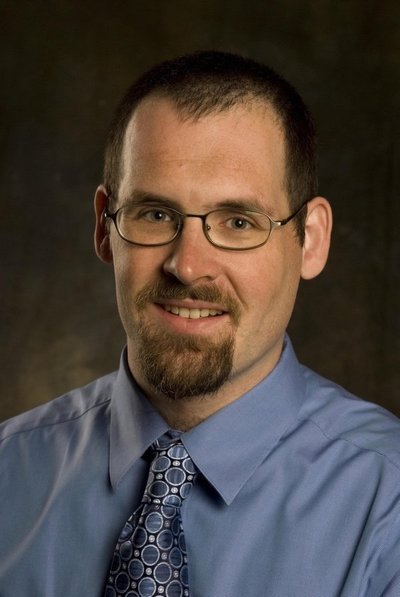April 26, 2007
Researcher, student, volunteer: Graduate School Medal recipient busy as he is multitalented
For Thomas Robey, it’s all about finding common ground between science, academia and the city.
For his work linking the three, Robey has been awarded the 2007 UW Graduate School Medal, which is presented each year to one or two UW students who demonstrate exemplary commitment to both the University and the larger community.
Robey, 28, who is working on both medical and doctoral degrees, received a $10,000 fellowship made possible by annual private gifts to The Graduate School.
He was honored, along with 20 Graduate School endowed fellowship winners and 100 first-year recipients of national graduate fellowships, at a reception Monday afternoon at the UW Club.
“The Graduate School Medal is given to a person who best exemplifies the citizen scholar, and Tom is very much in that mold,” said Chuck Murry, Robey’s thesis mentor and director of the UW Center for Cardiovascular Biology.
Robey is a pretty busy guy.
In 48 hours earlier this month, he presented a Keystone Conference poster on his heart research, arranged an experiment involving mice at a UW lab, and volunteered at a Capitol Hill free medical clinic, where he counsels homeless teenagers about sexually transmitted diseases. Also, between experiments, Robey helped coordinate publicity for a seminar sponsored by the Forum on Science Ethics and Policy, a group he helped form three years ago. The group has held more than 50 seminars and workshops on matters such as stem cell research, climate change and intelligent design.
“It’s been the best student-led organization I’ve ever seen,” Murry said. “They’re well balanced and measured. They promote dialogue without fanning the flames.”
Robey became interested in organizing the group when the Murry lab began investigating human embryonic stem cells as potential sources of replacement heart tissue. He now believes that understanding between scientists and policy makers is as important as well-designed experiments.
Robey began research work as an undergraduate at the University of Pittsburgh, where he earned three bachelor’s degrees: one in bioengineering, another in the history and philosophy of science, and a third in biology.
Now in his sixth year as a UW student, Robey hopes to complete his doctorate in bioengineering later this year, then finish his last two years of medical school.
Robey is also a bicyclist, commuting between his UW lab, commitments such as the free clinic, and the Seattle home he shares with his wife, Susan Fink, an MD/Ph.D. student herself.
Robey works hard but says he’s no one-man show: “What a person does is highly dependent on his or her community — the mentoring and teamwork. I’m very grateful to the people who enable each other, including me, to do the work we do.”

